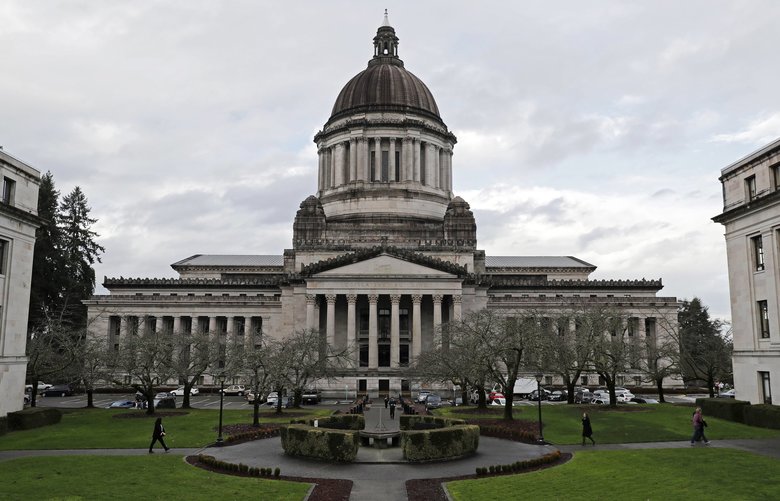Homelessness is a serious issue in the U.S. and leaves many students financially unstable while trying to balance academic priorities. While every student’s situation is specific, there is no denying that those who are homeless or in foster care require support to continue moving forward in achieving academic success.
Originally established in 2019, the Homeless and Foster Care College Students Pilot Program provides assistance and accommodations to homeless and foster care students who attend various colleges in Washington state. On Jan. 19, The Washington State Legislature and House Appropriation Committee held a public hearing to discuss the program, associated with House Bill 1166. HB 1166 extends the program until the end of 2024, adding an extra year to the original termination date set at the end of 2023. Kate Henry, a member of the House Appropriations Committee, says HB 1166 will also allocate for additional schools around the state to adopt the pilot program.
“House Bill 1166 would allocate for additional pilot sites to community and technical colleges and two additional sites for four-year institutions. The state board for community and technical colleges established four pilot programs at Edmonds College, South Puget Sound Community College, Walla Walla Community College and Yakima Valley College. The [Washington] Student Achievement Council was tasked with choosing the [additional] four-year institutions, of which Eastern Washington University and Western Washington University were chosen,” Henry said.

(David Priymak / The VanCougar)
Thomas Spencer, a senior majoring in public affairs at WSU Vancouver, is the director of legislative affairs for the Associated Students of WSU Vancouver. Spencer is currently pursuing a Washington Student Association internship, which allows him to collaborate with other students from different universities, and gain access to information on sponsored bills students want to either support or deny.
“[The Washington Student Association] has meetings every day to go over what legislation we’re looking at. … We try to identify legislators that are sponsors or co-sponsors of the bills that we want to support. If we do find legislation that we like, that could go a couple different directions. We could either outright support it, or we can even propose amendments to it,” Spencer said.
Washington State University was not selected to be a part of HB 1166’s list, but Spencer says the pilot program will do great things for all higher education institutions in a broader scope.
“As far as the university is concerned, they are very much in support of the program. There’s no specific information that WSU is going to be invited to participate in the program. … On one hand, I’m trying to focus on stuff that directly affects WSU students, but then I’m also looking at the broader picture of just higher education in general,” Spencer said. “So even if WSU isn’t picked or invited to participate in this program, I still think that it’s important for any higher education advocate to throw their voice behind it, even if they don’t directly or immediately benefit from it.”
During the hearing, several students across the state showed up and testified in support of the bill, describing their unique experiences on how HB 1166 had helped them during difficult times. Each student had a different story to tell, and as David Buri, executive director of government relations at Eastern Washington University, explained, there are several definitions of what the word “homeless” actually means.
“You know, we don’t want folks to raise their hands and say ‘oh, I’m homeless,’ and our definition of homeless may be different from their definition of homeless. For instance, somebody might be couch surfing and think ‘hey, I’ve got a place to stay,’ and so identifying that has been a real challenge. Serving them has been so time-sensitive because it’s not just that they need a place to stay, but maybe it’s an abusive relationship, or there’s family challenges,” Buri said.
As the pilot program has helped many students gain stability and the opportunity to pursue their degrees, Torin Tinnin, a student from South Puget Sound University, described how the pilot program made reaching his academic goals possible.
“I was going from my brother’s house, to a friend’s house, to a family member’s house and back and forth trying to find stable living, and this program provided that stable living for me. I recently had a daughter in April last year, and the program helps me provide a stable home for her. … It is going to help me move forward and proceed to get my degree, and I would encourage anybody who was having difficulties throughout trying to get their degree, to apply themselves to the program so they can get assistance because the program is definitely something amazing,” Tinnin said.
On Feb 1., the House Appropriations Committee convened to declare the bill as a due pass amendment and voted to recommend the bill move forward to the next passage of the legislative process. Upon further contemplation of HB 1166, the Washington State Legislature is set to decide on whether to expand or terminate the program during the 2021 regular session. HB 1166 will take effect after 90 days if passed. To learn more about HB 1166, click here for updates, and refer to the Washington State Legislature website for additional information.
As the epidemic of homelessness continues, students are becoming a large majority of the homeless and foster care population. While government entities continue to weigh other bills in the Washington State Legislature, many argue that HB 1166 will be immensely beneficial for students across the entirety of the state if approved.

Olivia is a senior studying English at WSU Vancouver.
